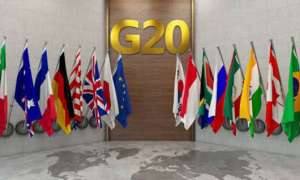- February 28th, 2026

Spain's China policy is similar to the EU's due to its evolution of bilateral economic relations and endogenous Chinese developments. This policy is influenced by Spain's EU and NATO membership, leading to the securitization of China's engagement in Spain's strategic...

Indonesia has been a potential BRICS member since 2011, with the country's potential to become one of the top five economies by 2045 and a leading power in Southeast Asia. However, Indonesia was not among the six countries selected from...

Vladimir Putin's visit to Kyrgyzstan on October 12 marked his first trip abroad since the International Criminal Court (ICC) issued a warrant against him in March 2023. This visit signalled Central Asia's increasing importance for Russia amid the isolation triggered...

China and Central Asian countries are expected to produce more upgraded economic cooperation projects marked by a green, digital economy in the next ten years, according to experts. This follows the tangible results of the Belt and Road Forum for...

TORONTO Canada has recalled 41 of its diplomats from India following the Indian government's announcement that it would revoke their diplomatic immunity. This comes amid a dispute over the slaying of a Sikh separatist in Canada. Canada has accused India...

Russian President Vladimir Putin attended China's third Belt and Road Forum (BRF) in Beijing, where he expressed an "aspiration for equal and mutually beneficial cooperation." The event, marking the 10th anniversary of China's Belt and Road Initiative, is a global...

Czech Prime Minister Petr Fiala is considering moving the Czech embassy from Tel Aviv to Jerusalem, similar to the US's 2018 move. The move is controversial as Jerusalem is the capital of Israel and Palestine, home to many sacred sites...

The September 2023 New Delhi G20 Summit marked the end of the Indian G20 presidency and Indonesia's role in the troika. Indonesian President Joko Widodo's pacifist demeanour was reflected in his handling of the Ukraine conflict and his role during...

The Middle East is facing increasing tensions, with US President Joe Biden visiting Israel to assess Israeli plans. The humanitarian toll and long-term costs of the Israeli ground offensive are growing, with concerns about hostages and aid to Gaza. Iran...
 Loading posts...
Loading posts...  All posts loaded
All posts loaded
No more posts

